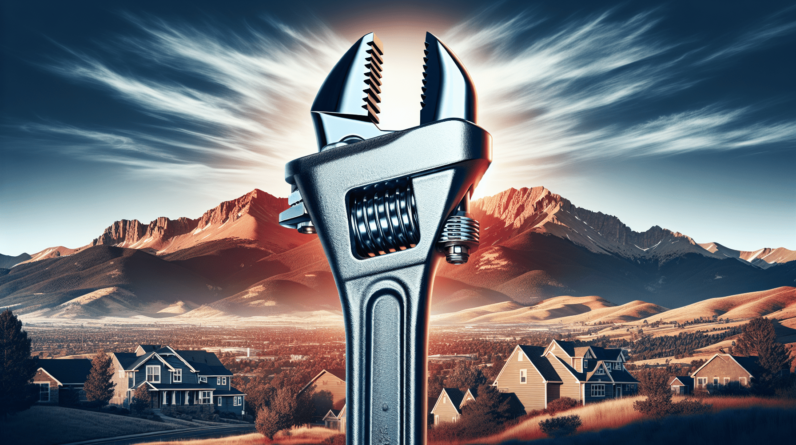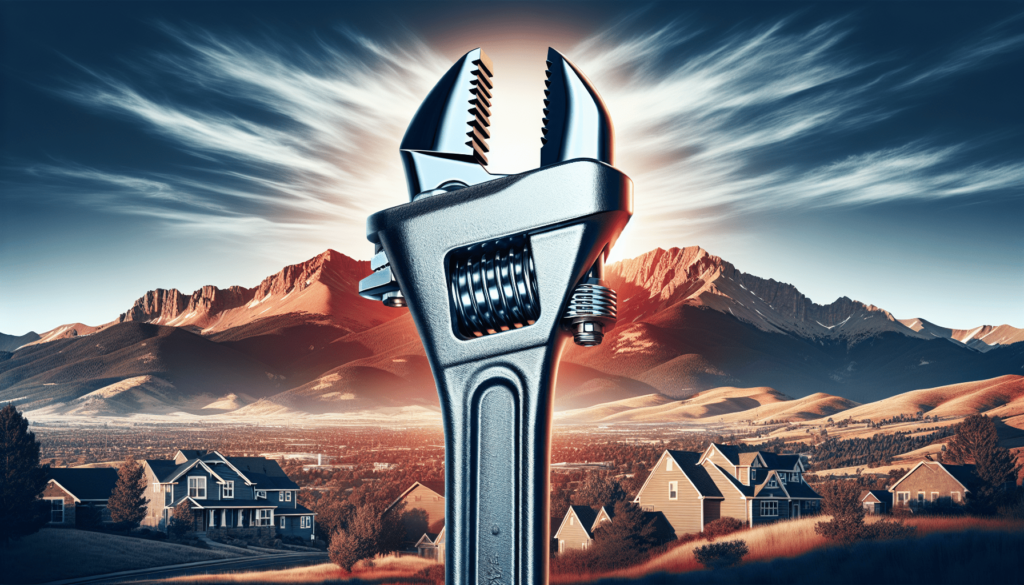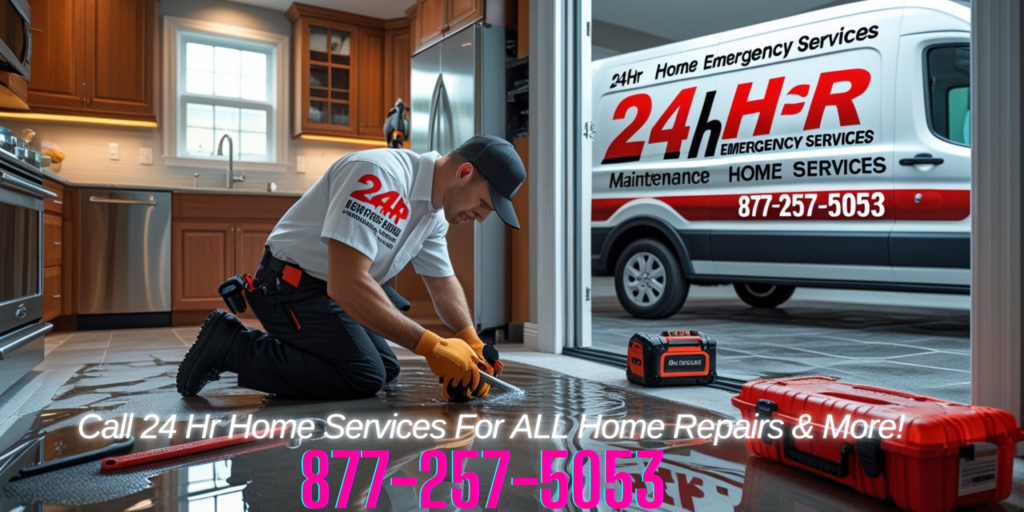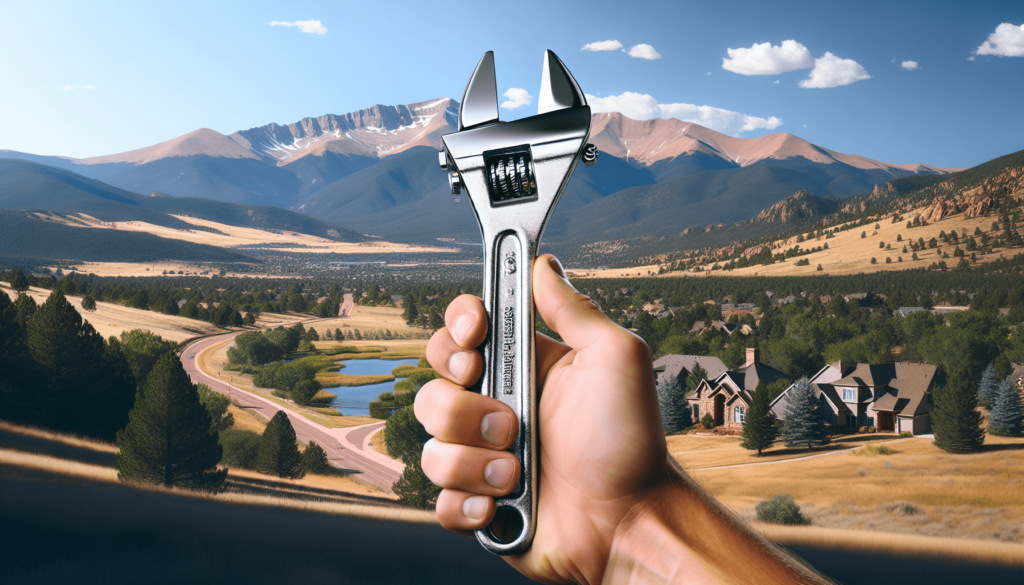

Have you ever found yourself in a plumbing emergency, wondering who to call and what to do next? It’s a stressful situation that can disrupt your day and even cause damage to your home. When it comes to keeping your Colorado Springs home in tip-top shape, knowing the ins and outs of emergency plumbing can save you time, money, and a whole lot of trouble.

Understanding Emergency Plumbing
Emergency plumbing refers to urgent plumbing issues that require immediate attention. These problems often stem from unexpected circumstances, and they can lead to significant damage if not addressed quickly. It’s essential to understand what qualifies as an emergency and how to react when one occurs.
Common Emergency Plumbing Issues
A variety of plumbing problems could be classified as emergencies. Here’s a rundown of the most common ones you might face:
| Issue | Description |
|---|---|
| Burst Pipes | Sudden pipe ruptures that can lead to flooding. |
| Severe Leaks | Major leaks that cause water damage to your property. |
| Overflowing Toilets | Toilets that won’t stop running or flushing. |
| Clogged Drains | Blockages that prevent water flow and can back up. |
| Water Heater Failures | Heating issues that leave you without hot water. |
| Sump Pump Failures | Problems with sump pumps, especially during heavy rains. |
Having a grasp of these issues can better prepare you for unexpected plumbing crises.
Signs You Need Emergency Plumbing Services
Recognizing the signs of a plumbing emergency is crucial. Here are some indicators that you should reach out for help:
- Sudden Changes in Water Pressure: If you notice a significant drop in water pressure, it could signal a serious issue.
- Discoloration of Water: Brown or rust-colored water is a sign of pipe corrosion and should be addressed immediately.
- Unpleasant Odors: Foul smells from drains could indicate sewer problems.
- Puddles or Water Spots: If you notice water pooling or stained areas on floors or walls, it’s likely a leak.
- Gurgling Sounds: Unusual sounds from your plumbing could suggest a blockage or venting issue.
Being attentive to these signs can help you act quickly and prevent long-term damage.
Finding a Reliable Emergency Plumber in Colorado Springs
When you encounter a plumbing emergency, knowing who to call is critical. You want a plumber who is reliable, knowledgeable, and available 24/7.
Tips for Choosing the Right Emergency Plumber
Choosing an emergency plumber requires careful consideration. Here are some tips to help you make the right choice:
- Check Credentials: Ensure the plumber is licensed and insured. This protects you and your home from potential damages.
- Look for Reviews and Referrals: Word of mouth is powerful. Ask friends or family for recommendations, and check online reviews.
- Evaluate Their Response Time: A good emergency plumber should respond quickly, especially in urgent situations.
- Inquire About Their Services: Ensure they provide the specific plumbing services you need.
- Get an Estimate: Ask for a rough estimate for their services. A transparent plumber will provide a clear idea of costs.
Finding a trustworthy plumber can make all the difference during an emergency.
The Importance of Quick Response
In plumbing emergencies, every hour counts. Water damage can worsen quickly, leading to more expensive repairs. Whether it’s a burst pipe or an overflowing toilet, getting professional help immediately can save you from costly consequences down the line.
The Cost of Emergency Plumbing Services
Understanding the costs associated with emergency plumbing can help you budget better and avoid surprises later on.
What to Expect in Terms of Costs
Emergency plumbing services usually come at a premium compared to standard services. Here’s a general breakdown of what you might expect:
| Service | Average Cost Range |
|---|---|
| Basic Emergency Call-Out Fee | $100 – $300 |
| Leak Repair | $250 – $600 |
| Clogged Drain Clearing | $100 – $400 |
| Pipe Replacement | $500 – $2,000 |
These figures can vary based on the complexity of the issue, the time of day, and your location within Colorado Springs. Always request an estimate before work begins to avoid unexpected charges.
Additional Costs to Consider
In addition to the base costs for services, consider the following factors that might affect your overall expenses:
- Time of Day: Emergency services after hours or on weekends may incur higher rates.
- Materials: The quality and type of materials used for repairs can impact costs.
- Extent of Damage: More extensive damage will typically require more labor and resources, leading to higher costs.
Understanding these factors can give you a clearer picture of what to expect when it comes to emergency plumbing expenses.
DIY vs. Professional Emergency Plumbing
Many homeowners struggle with whether to tackle plumbing issues themselves or call a professional. While some minor repairs are manageable, others require expertise.

When to Attempt DIY Repair
Feeling handy? There are some plumbing issues that you can tackle yourself, such as:
- Unclogging Drains: Using a plunger or a drain snake can often clear minor blockages.
- Fixing a Running Toilet: Adjusting the flapper or the float can resolve minor toilet issues.
- Replacing Faucet Washers: Replacing worn washers and O-rings in faucets can stop leaks.
However, use caution. If you’re unsure or the problem persists, it’s best to consult a professional.
Why Calling a Professional is Often Best
For significant plumbing problems, professional help is usually the safest bet. Here’s why:
- Expertise: Plumbers have the training and experience to diagnose and fix the problem quickly.
- Tools: Professionals have access to specialized tools that can make repairs more effective and efficient.
- Warranty: Many plumbing services offer warranties on their work, providing peace of mind.
Knowing when to call for help can prevent you from inadvertently causing more damage.

Preventing Plumbing Emergencies
While it’s impossible to eliminate all plumbing issues, there are strategies you can implement to minimize the risk of emergencies occurring in your home.
Regular Maintenance Checks
One of the most effective ways to prevent plumbing emergencies is through regular maintenance. Here are some maintenance tips:
- Inspect Pipes Regularly: Check for signs of wear and leaks, especially in basements or crawl spaces.
- Clear Drains: Regularly clear out any debris in your drains to prevent blockages.
- Monitor Water Pressure: High water pressure can stress your pipes. You can use a pressure gauge to keep tabs on levels.
Being proactive can save you money and stress in the long run.
Seasonal Plumbing Tips
Paying attention to seasonal changes can help you prevent plumbing issues. Here are some seasonal tips:
- Winter: Insulate pipes to prevent freezing and bursting.
- Spring: Check your sump pump after heavy rains to ensure it’s functioning properly.
- Summer: Inspect outdoor plumbing, including hoses and irrigation systems, for leaks.
- Fall: Drain and store outdoor hoses before the first freeze.
Being attentive to seasonal changes can keep your plumbing system in good shape year-round.
What to Do in a Plumbing Emergency
If you find yourself facing a plumbing crisis, knowing the steps to take can help minimize damage.
Immediate Action Steps
When an emergency arises, here’s what you should do:
- Turn Off the Water Supply: Locate your main shut-off valve and turn it off to prevent further damage.
- Assess the Situation: Try to identify the problem. Is it a leak, clog, or something else?
- Contact a Professional: Call your emergency plumber. Provide them with all necessary details about the situation.
- Document the Damage: Take photos and notes for your records and insurance claim if needed.
These steps can help you stay calm and focused amid the chaos.
Safety Precautions to Take
Safety should always be your top priority during a plumbing emergency. Here are some precautions you should follow:
- Avoid Contact with Contaminated Water: If sewage is involved, wear gloves and stay clear of the area until professionals arrive.
- Ensure Electrical Safety: Turn off electricity around the affected area to prevent electrical hazards.
- Don’t Use Excessive Force: If you’re trying to fix the problem yourself and it escapes your control, stop. It might make things worse.
Staying safe will ensure that you and your family are protected during a plumbing emergency.
Understanding Plumbing Systems
Having a basic understanding of your home’s plumbing system can enhance your ability to manage emergencies.
The Components of Your Plumbing System
Familiarizing yourself with the main components of your plumbing system can be valuable. Here’s a quick overview:
| Component | Function |
|---|---|
| Water Supply Lines | Deliver fresh water to fixtures. |
| Drainage/Sewer Lines | Carry wastewater away from your home. |
| Fixtures | Toilets, sinks, showers, and faucets. |
| Water Heater | Heats water for your home’s needs. |
| Sump Pump | Prevents flooding in basements and crawl spaces. |
Understanding these components can help you communicate better with your plumber during emergencies.
Basic Plumbing Terminology
Knowing some basic plumbing terms can make conversations with professionals smoother. Here are a few essential terms:
- Shut-Off Valve: A valve that stops water flow from the main supply to specific areas in your home.
- Trap: A curved pipe segment that holds water, preventing sewer gases from entering your home.
- Backflow: The unwanted reverse flow of wastewater into clean water systems, which can have serious health implications.
Familiarizing yourself with this terminology will enable clearer communication when you call for help.
After the Emergency: Steps to Take
Once the urgent threat has been addressed, there are several follow-up actions to take to ensure lasting solutions.
Assessing and Documenting Damage
After the plumbing emergency has been resolved, take stock of any damage that occurred:
- Inspect the Area: Check for ongoing issues like wet spots or mold.
- Take Photos: Document any damage for insurance claims and future reference.
- Contact Your Insurance: If applicable, reach out to your homeowner’s insurance provider to discuss possible coverage for damages.
These actions can help you navigate the aftermath smoothly.
Considering Long-Term Solutions
After addressing an emergency, consider what changes could prevent future issues. Here are a few suggestions:
- Upgrade Aging Infrastructure: If your pipes are old, consider having them replaced to prevent future emergencies.
- Install Water Alarms: Consider investing in water leak detectors that can alert you during potential problems.
- Routine Inspections: Schedule regular plumbing inspections to catch problems before they escalate.
Taking these steps can provide you with greater peace of mind and ensure your home remains safe from plumbing issues.
Conclusion
Experiencing a plumbing emergency is undoubtedly challenging, but being prepared can significantly reduce stress and mitigate damage. By understanding common plumbing issues, knowing when to call a professional, and maintaining your plumbing system, you can ensure the health and safety of your Colorado Springs home.
Being proactive and informed is the best way to handle plumbing issues. So, how equipped do you feel to manage plumbing emergencies now? With the information shared here, you can take confident steps to safeguard your home against unexpected plumbing troubles. Remember: when in doubt, don’t hesitate to reach out for help!









